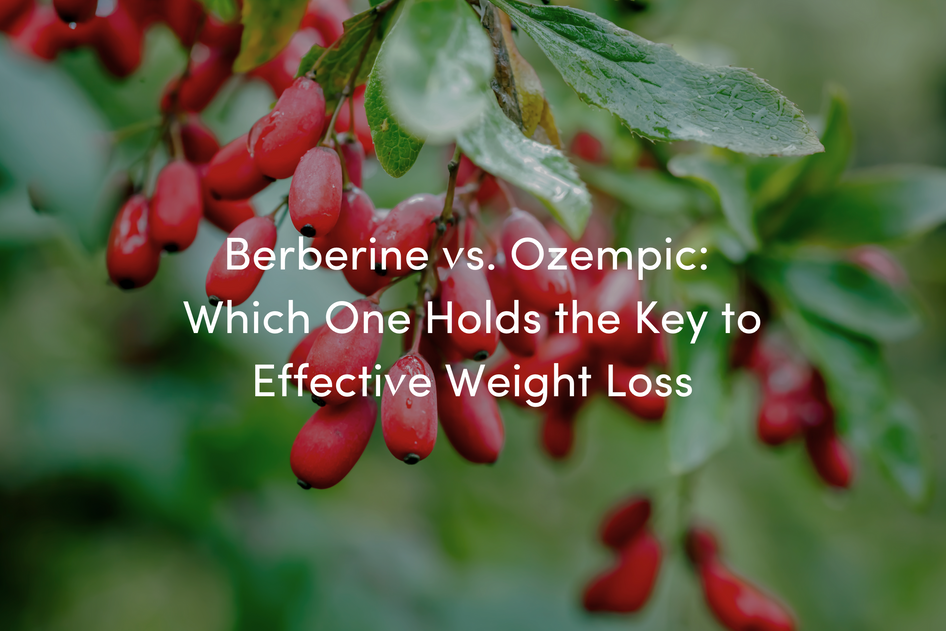Berberine vs Ozempic: Which one holds the key to effective weight loss

An over-the-counter supplement containing berberine has blown up on social media platforms with influencers calling it “nature's Ozempic”, the alternative way to lose weight.
So, what is Berberine?
It is a plant-derived bitter compound that some small studies suggest exhibits anti-inflammatory properties, may lower cholesterol, blood sugar and insulin resistance. Less than 1% of Berberine is absorbed by the body, making the possible activities of this supplement extremely limited!
What are the differences between Berberine and Ozempic:
- Berberine’s works by increasing enzyme activity in our cells which results in increased glucose breakdown.
- Ozempic works by injecting an imitation hormone of GLP-1 which signals a reduction in hunger and slows down stomach emptying – hence you eat less.
- A study demonstrating Berberine’s effects on human weight-loss used only 7 people and found treatment with berberine (1500 mg/day - 3 large capsules for 3 months) demonstrated only some mild effects on body weight but little to no changes in glucose and lipid parameters from the control group (Perez-Rubio et al., 2013).
- Injectable Ozempic has been shown to have up to 15% decrease in weight over a 14-month period, however it does come with some significant side effects such as nausea, diarrhoea and constipation and 2/3rds of the people regained the weight after they stopped the injections.
- Injectable Ozempic does work immediately, but for the first month you must gradually increase the dosage slowly to minimise side effects and let your body get used to it.
- Berberine takes at least 4 to 8 weeks to start having an effect and like Ozempic some side effects like bloating and diarrhoea may be experienced by some people.
The real “nature’s Ozempic” is Calocurb. Calocurb is the world’s only patented natural supplement with the active ingredient ‘Amarasate’ which has been clinically proven to stimulate increased release of the body's own GLP-1. After only 1 hour of taking Calocurb, it has been shown to decrease hunger by up to 30% in males and females and subsequently decrease calorie intake by 20%!
References:
Bertuccioli, A., Moricoli, S., Amatori, S., Rocchi, M. B. L., Vici, G., & Sisti, D. (2020). Berberine and dyslipidemia: different applications and biopharmaceutical formulations without statin-like molecules—a meta-analysis. Journal of medicinal food, 23(2), 101-113.
https://doi.org/10.1089/jmf.2019.0088
Pérez-Rubio, K. G., González-Ortiz, M., Martínez-Abundis, E., Robles-Cervantes, J. A., & Espinel-Bermúdez, M. C. (2013). Effect of berberine administration on metabolic syndrome, insulin sensitivity, and insulin secretion. Metabolic syndrome and related disorders, 11(5), 366–369.
https://doi.org/10.1089/met.2012.0183
Och, A., Podgórski, R., & Nowak, R. (2020). Biological Activity of Berberine-A Summary Update. Toxins, 12(11), 713.